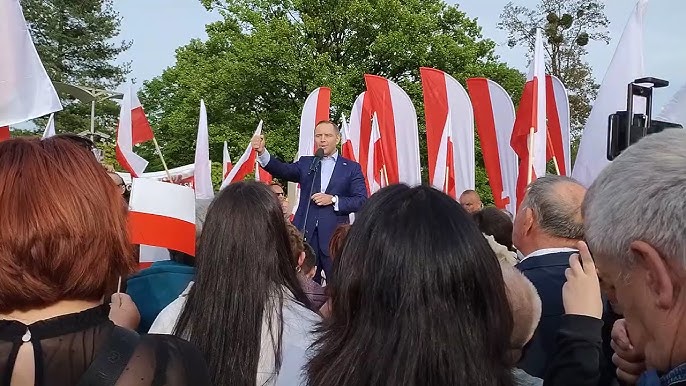The Struggle over religious education in Poland has intensified recently.
The recent months have seen an escalation in the struggle over religious education in Poland. The new decision by Education Minister Barbara Nowacka shakes the long-established traditions in this area.
According to Tehsil365, citing The Catholic World Report, the latest attack on religious education began with Minister Nowacka’s decree to exclude grades in religious education or ethics from students’ overall grade point averages.
Karol Nawrocki from the conservative Law and Justice party (PiS) took office as Poland’s president on August 6. His inauguration highlighted two contrasting perspectives: on one side, the various left-wing forces within Prime Minister Donald Tusk’s coalition; on the other, American conservatives opposing European liberals on issues related to religious education and social values.
Let us consider both the Montana and Poland examples.
In May, the state of Montana passed a law allocating part of the weekly school hours to religious instruction, thus guaranteeing children access to religious lessons. In June, Poland’s Education Minister Barbara Nowacka continued the campaign against religious education initiated during the left-wing government of Prime Minister Donald Tusk.
In 1990, one year after the fall of communism, the Polish government reinstated religious education in public schools. All children were given the opportunity to receive lessons from qualified representatives of their own denominations. In Poland, this was primarily conducted by the Catholic Church. Those who did not wish to take religious classes could choose ethics instead. A similar approach exists in many European countries.
At that time, Poland had no parochial schools, and education was entirely under state control. The Catholic University of Lublin was the only independent university operating behind the “Iron Curtain” stretching from Berlin to Vladivostok. The government occasionally provided building materials and even permitted the construction of churches, but there were very few places where churches could conduct classes at the school level. After the fall of the communist regime that suppressed religious life, it was natural for Polish Catholics to be pleased with the restoration of their religious and social status.
However, the lingering old socialist mentality in the country, combined with left-leaning Catholics accustomed to the Western idea of strict separation between church and state, opposed the church’s stance on issues such as abortion legalization and the recognition of LGBT rights. Claims often circulated in these circles that Poland was becoming a “confessional state.” Protests against the visible role of religion in public life ranged from demands to remove the crucifix from parliament to demonstrations against strict abortion laws. Yet religious education remained the main target.
The latest move against religious education occurred on June 11, 2025, when Barbara Nowacka issued a decree excluding religious education and ethics grades from students’ overall GPA. This decision came ten days after her political camp lost the presidential elections and immediately after the Constitutional Court annulled her previous order, which had reduced religious lessons to one hour per week. The court ruled that this violated the Concordat, which regulates the Catholic Church’s role in religious education and prevents the government from unilaterally changing these rules.
Polish parents are now preparing to take legal action against Nowacka’s decision because it lowers the overall averages of secondary school students who receive high marks in religion or ethics, thus reducing their chances of admission to selective high schools.
Previously, Nowacka had also attempted to introduce sex education programs aligned with Western gender ideology, leading to disputes with parents. Although parental rights are weaker in Poland than in the United States, Polish parents remain very active on this issue.
Barbara Nowacka, daughter of a former left-wing deputy prime minister, participated in the 2016 “Black Monday” protests. These protests opposed the Constitutional Court’s annulment of provisions allowing abortion due to genetic defects. Following this decision, Poland adopted one of the strictest abortion laws in Europe.
Currently, political polarization in Poland remains intense. In the context of Karol Nawrocki’s narrow presidential victory, Prime Minister Tusk’s open opposition to the strong influence of the Catholic Church is seen as politically risky. However, it appears that the government’s left wing does not intend to back down on this issue and is trying to weaken the position of religious education in schools, breaking a 35-year tradition.

